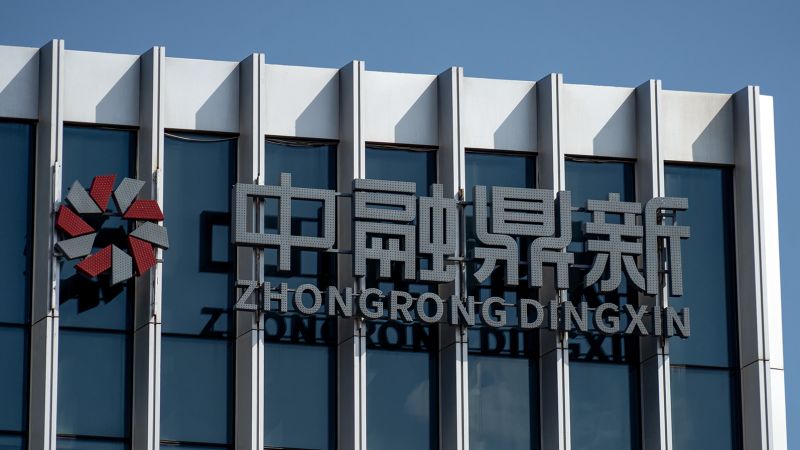Troubles besetting one China’s biggest privately-owned financial conglomerates have deepened with Zhongzhi now at the centre of a criminal investigation.
The Beijing police has launched a probe into the wealth management unit of Zhongzhi Enterprise Group, the authorities said over the weekend. The announcement comes just days after the company told its investors that it is “severely insolvent.”
The police said Zhongzhi was suspected of committing “illegal crimes” and has enforced “mandatory criminal measures” against a number of suspects, including one surnamed Xie, according to a statement posted on Saturday by the police bureau. Xie Zhikun, the founder of the group, died of a heart attack in December 2021, but his nephews hold key posts in the group, according to Chinese state media.
“Investors are requested to actively cooperate with the police in investigating and collecting evidence,” the police said, without elaborating on the crimes or the measures.
Under China’s Criminal Procedural Law, “criminal mandatory measures” can mean anything from bail pending trial or house arrest to detention or arrest.
Zhongzhi controls nearly a dozen asset and wealth management firms. On Wednesday, it told its investors in a letter that it has a “huge debt” and cannot pay all its bills. It pegged its total liabilities at up to 460 billion yuan ($65 billion), against assets of 200 billion yuan.
“Liquidity is exhausted, and asset impairment is serious,” Zhongzhi said in the letter, which was cited by Chinese state-owned news outlets. “Preliminary due diligence shows that the group is severely insolvent and has significant ongoing operating risks,”
Zhongzhi apologized for its financial woes, and said that since the death of its founder in 2021, and the subsequent resignations of senior executives, it had struggled with “ineffective” internal management.
The group did not respond to a request for comment on Monday.
The Beijing-based company is considered part of China’s $3 trillion “shadow banking” industry, a sector that forms an important source of finance in the country. The term usually refers to financing activity that takes place outside the formal banking system, either by banks through off-balance-sheet activities, or by non-bank financial institutions, such as trust firms.
Concern about Zhongzhi finances were first triggered in August when a trust it partially owns missed payments to its individual and corporate investors.
Angry demonstrators were recorded chanting slogans and demanding payment related to investment products issued by the company, according to videos posted on Chinese social media seen by CNN. At least three listed companies were also among the victims, with the scale of payments missed exceeding 110 million yuan ($15 million).
The missed payments underscore how China’s prolonged property downturn may be spilling over to its financial industry.
A major reason behind the company’s financial woes is its strong links with China’s real estate sector. Zhongrong International Trust, which managed $87 billion worth of funds for corporate clients and wealthy individuals, has invested about a tenth of its money in real estate, according to its annual report from last year.
But several companies in its real estate portfolio have struggled with a cash crunch since 2020 after regulators started cracking down on developers’ reckless borrowing.
Read the full article here
